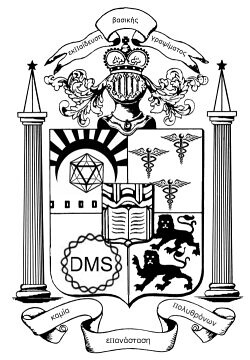We get conflicting accounts of medicine in popular media, in undergraduate biology, and in more research oriented basic science lectures. But it's always good to get the single consensus answer. In CPP this comes from the mouths of practicing physicians specializing in the disease being discussed. Their answer has the advantage of having survived contact with reality, and being relatively accepted by a lot of other medical types you might talk to.
Psychiatry is an area where the gap between popular accounts and practice appears to be the widest. Civilians* throw around diagnoses, or sub-diagnoses or outdated diagnoses with great freedom, assigning fairly serious conditions to (say) celebrities they have never met. As described in psychiatry, life is more complicated. Diagnosis consists of large lists of criteria that patients have to fulfil, e.g. in order for you to be depressed, from this list:
Depressed mood
Energy loss
Anhedonia (lack of pleasure)
Death thoughts
Sleep changes
Worthlessness
Appetite
Mentation changes
Psychomotor
You must have depressed mood or anhedonia and five of the others for most of the day every day for two weeks to qualify those weeks as a depressive episode. This sort of formal rigor is much more appealing than saying, "Hey, this guy is sad, let's give 'im some Prozac."
One of the best parts of this section was that in lab, instead of only reading cases, we had actual patients come in to talk to the class so we could see what it was like. And that's where the nice neat system vanishes. Our bipolar patient was being treated for anxiety, our obsessive-compulsive disorder patient had depression. Our schizophrenic patients seemed to have well behaved disorders, but our recovering alcoholic physician had his ADHD misdiagnosed as anxiety, and got addicted to his Xanax. And if depression was such a difficult diagnosis to meet, antidepressants would not be among the top-selling drugs.
They do teach some things that are pretty easy for me to swallow:
Psychodynamic psychotherapy ("And how does that make you feel?") is reserved for those with lots of time and money.
Cognitive behavioral therapy is pushed, especially for certain disorders where medication is not helpful.
It seems to me that the reliance on medication is partially about efficacy and partially about cost. Consider that you can get a month's supply generic prozac or paxil (fluoxetine and paroxetine) for $4 from Wal-Mart, but that a month's supply of cognitive therapy is $400.
* I realize that this is my first use of this potentially derogatory term to describe non-medicos and another step on my long journey to becoming and asshole physician. Further I recognize that this blog began as an attempt to stymie said journey, and has instead served as a record of it.
Subscribe to:
Post Comments (Atom)

1 comment:
Prufrock!! This blog title makes me happy.
Post a Comment